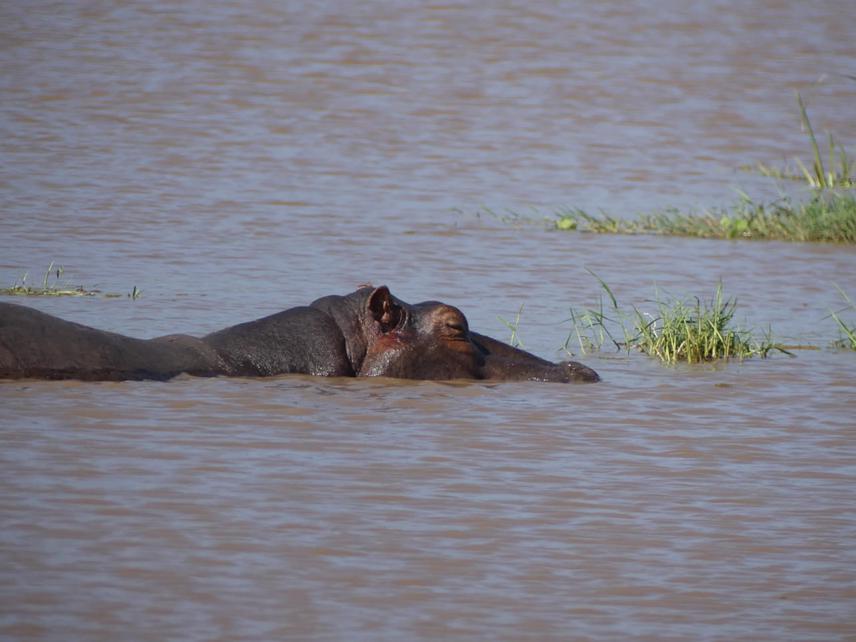Florence Godfrey Tarimo
Lakes Manyara and Babati, are key inland lakes found in northern Tanzania and an ideal habitat with ecological and management potential for protecting and sustaining health populations of common hippopotamus (Hippopotamus amphibious) and other biodiversity. The two lakes are a home and critical breeding ground for the vulnerable common hippopotamus.

Lake Manyara. © James Madeli, 2017
Hippos are among a few African mega herbivores that are understudied and thus, relatively neglected, despite theme being listed as vulnerable by IUCN. The hippos are ecosystem engineers, and they are significant contributors of nutrients to the aquatic ecosystems in which they occur hence supporting the food web and local fisheries. Despite its ecological significance, the existence of common hippopotamus (Hippos) in these areas is still threatened by conflicts with communities living adjacent to the lakes and habitat loss due to changes in land use and climate which further leads to poor health and breeding performance of hippos. The human-hippo conflicts are exacerbated by lack of awareness and alternative sources of income to communities residing adjacent to these lakes thus causing dangers to hippos, people, crops as well as subsequent destruction of ecological habitat for the hippos. This leads to forage shortage to hippos and further exacerbate conflicts in these areas.
This study, therefore, aims to enhance the management and conservation of hippos in Lake Manyara and Babati through habitat restoration, conservation education, and formulation of alternative ways for co-existence including compatible options for sources of income for communities to sustain their livelihood and enhance community perception and positive attitude towards hippo protection and conservation. The findings from this project will highlight on the extent of awareness of conservation importance of hippos, the perceptions of local communities and the habitat conditions will be used to devise HHC solutions including establishment of barriers among others around crops, and riparian buffer zones that exclude cattle and crop planting. This project also expected to highlight on the knowledge gaps in HHC research, as a way to inform hippo conservation and management strategies.